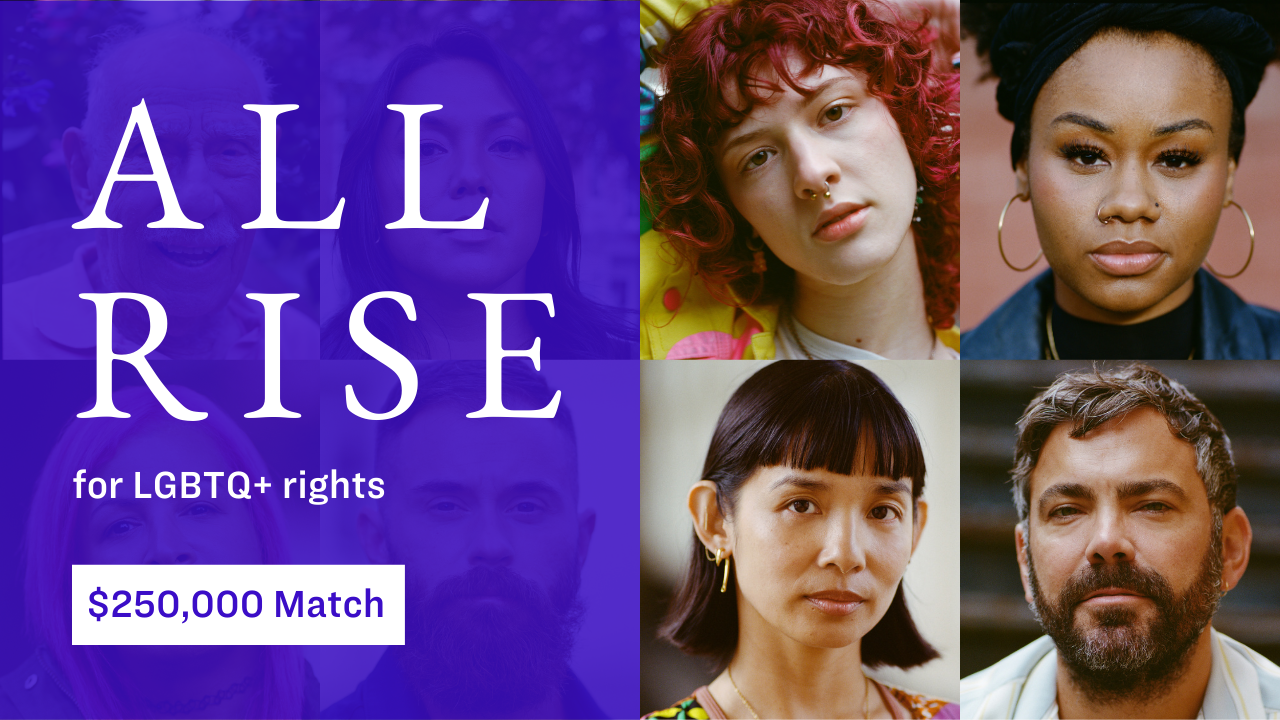“The Court has chosen to ignore the implications of this cruel and over-broad ban that is particularly dangerous for youth experiencing homelessness.”
The United States Supreme Court today reversed a lower court ruling that had blocked enforcement of an Oregon city’s draconian ordinance criminalizing people experiencing homelessness. Lambda Legal, the Juvenile Law Center, the law firm Baker McKenzie, and 223 experts on unhoused youth, including young people who have experienced homelessness, had submitted a friend-of-the-court brief to the Court in the case, City of Grants Pass v. Johnson, underscoring the particular harm the unconstitutional ban posed to unhoused youth, many of whom face rejection and abuse at home and face additional barriers to accessing other housing.
“As detailed in our amicus brief, LGBTQ+ youth make up a disproportionate percentage of youth experiencing homelessness, along with youth of color and youth with foster care experience,” said Currey Cook, Senior Counsel and Youth in Out-Of-Home Care Project Director, Lambda Legal. “Unconscionably, the Court has chosen to ignore the implications of this cruel and over-broad ban that is particularly dangerous for youth experiencing homelessness. Ordinances such as the one passed in Grants Pass harm youth and are counterproductive, offering nothing to help ensure youth have safe and sustainable housing.”
“This is a devastating setback for the millions of young people nationwide who experience homelessness each year,” said Jessica Feierman, Senior Managing Director at Juvenile Law Center. “Young people facing challenges need support, affordable housing, and living wages, not cruel punishment for the simple act of sleeping in a public place with a blanket or other protection from the cold.”
In her dissent, Justice Sotomayor specifically cited the Lambda Legal/Juvenile Law Center brief, quoting: “For young people, ‘family dysfunction and rejection, sexual abuse, juvenile legal system involvement, “aging out” of the foster care system, and economic hardship’ make them particularly vulnerable to homelessness.”
The Oregon Law Center filed the original class-action lawsuit challenging Grants Pass’s ordinance in 2018, claiming the ordinance violated the U.S. Constitution’s Eighth Amendment prohibition on cruel and unusual punishment. A U.S. District Court in July 2020, blocked enforcement of the ban, and the U.S. Court of Appeals for the Ninth Circuit affirmed that ruling in September 2022. Grants Pass then sought review by the Supreme Court, which granted cert on January 12, 2024.
Read today’s decision here. Read the amicus brief here. The brief was authored by: M. Currey Cook, Richard Saenz, and Karen L. Loewy of Lambda Legal; Marsha L. Levick, Vic F. Wiener, Jessica R. Feierman, Christopher Lin, and Breanne Schuster of Juvenile Law Center; and pro-bono co-counsel Angela C. Vigil, Andrea N. Rivers, Halli E. Spraggins, Catherine Y. Stillman, Nicholas O. Kennedy, Nicholas Decker, and Avi Toltzis of Baker & McKenzie LLP.


